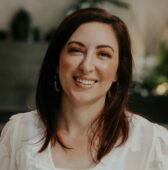
Anxiety therapists in Pine Bluff, Arkansas AR

Dr. Traci Williams
Psychologist, PsyD, ABPP, CFT-I
In our work together, I help you identify the root cause of your anxiety and understand your triggers. You will learn coping mechanisms and relaxation techniques so you can manage your anxiety. We will challenge and reframe negative thought patterns that can contribute to your anxiety so you can regain control of your life.
Utah Center for Evidence Based Treatment
Psychologist, Ph.D.
The Anxiety and Mood program provides expert care for the treatment of clinical depression, bipolar disorder, anxiety disorders, dual diagnosis, and complex co-occurring conditions (i.e. a depressive disorder and substance abuse, anxiety and sex addiction, attention deficit disorder and panic, etc.). After a thorough diagnostic assessment and case conceptualization, the anxiety and mood team will draw from their clinical expertise and the research literature to select an appropriate treatment protocol to effectively reduce your symptom severity. Anxiety and Mood Program clinicians treat children, adolescents, and adults in individual, couples, and group modalities.
Therapists in this program are trained in evidence based treatments including:
Cognitive Behavioral Therapy (CBT)
Acceptance and Commitment Therapy (ACT)
Prolonged Exposure (PE)
Exposure with response prevention (ERP)
Interpersonal Therapy
Motivational Interviewing
Cognitive Behavioral Therapy for Insomnia (CBT-I)
This program is also designed for clients with medical conditions ranging from typical life transitions (e.g., pregnancy) to more complex medical diagnoses. Medical and health concerns often require a multidisciplinary approach to treatment that attends to the stress of health problems on you and your loved ones. Working in close consultation with your primary care provider or specialty physician, clinicians in the anxiety and mood program will provide through assessment of the range of biopsychosocial factors that may be contributing to the maintenance or exacerbation of your medical diagnosis. Clinicians in this program are trained in evidence based therapies designed to change problem behaviors and reduce symptom severity.
Dr. Bridget Kromrey
Psychologist, PsyD
I have extensive experience working with children, adolescents, and adults who have a range of anxiety experiences including social anxiety, OCD, and generalized anxiety.
Jayson L. Mystkowski
Psychologist, Ph.D., ABPP
While Cognitive-Behavior Therapy (CBT) is highly effective in the treatment of anxiety disorders (e.g., Panic Disorder, Social Phobia, and Obsessive-Compulsive Disorder), clinicians do see some “return of fear,” or partial relapse, in some patients due to a variety of factors. Over the past two decades, treatment researchers, with whom Dr. Jayson Mystkowski had the pleasure of working with at UCLA for over 10 years, have studied “return of fear” and discovered some key variables that may optimize the effects of learning during CBT for anxiety disorders (Craske et al., 2008).
First, evidence suggests that focusing on tolerating fear versus eliminating fear yields better clinical outcomes in the long term. Namely, teaching clients that fear and anxiety are normal feelings, rather than attempting to “down-regulate” such feelings all the time, is more realistic and seems to engender “hardier” clients. Second, helping clients to generate an expectancy that “scary things will not happen,” is very powerful. To do this, it is important for clinicians to create more complex exposure exercises (i.e., tasks in which a client confronts a stimulus of which they are afraid), using multiple feared stimuli instead of one at a time. Then, the lack of a feared outcome becomes particularly surprising and memorable for a client and fear reduction is more potent. Third, increasing the accessibility and retrievability of non-fear memories learned during treatment are powerful factors in mitigating against a return of fear. Craske and colleagues demonstrated that exposure to variations of a feared stimulus, using a random schedule across multiple contexts or situations, is more effective than exposure to the same stimulus, on a predictable schedule, in an unchanging environment. The former paradigm, it is argued, creates stronger non-fear memories that are easier for a client to access when subsequently confronting feared objects or situations outside of the therapy context, than the later scenario.
In sum, clinicians have long been aware that some fear or anxiety returns following very successful CBT treatment. As mentioned above, there are some clear, empirically supported ways to modify the therapy we provide to further help clients generalize the gains made in therapy sessions to the real world.
Dr. Sheena Sikorski
Psychologist, PsyD, Licensed Psychologist
If you're stuck in constant comparison mode or feeling like things need to be perfect all the time...then you might procrastinate out of fear something won't be good enough or even overwork yourself until things are just perfect. Either way, these sort of patterns may contribute to anxiety. Let's work together to get you out of this cycle!





